For a Free E-mail subscription to this newsletter, click below:
.
It's still summer, and through some pretty grim heat, I've been following trails from one book or article to another. Thinking of writing a murder mystery, I read two early Lew Archer novels that were a lot of fun, plus three Donna Leon Commisario Brunetti in Venice novels. I'm in the middle of drafting a science fiction novel, and to get in the mood for that, I read two Justice of Thoren novels by Ann Leckie. I even managed to read some literary books from the twentieth century: Saul Bellow's Humbolt's Gift and then, because his character Humbolt was patterned on the sacred monster Delmore Schwartz , I read Schwartz's book of short stories, In Dreams Begin Responsibilities.
Schwartz does some pretty wonderful things. In the dream story of the title, a young man shouts at the movie screen where he is watching the courtship of his parents. This story was the first piece in the first issue of Partisan Review in 1934. It was surreal and wonderfully, deeply felt. I loved even more the long first-second generation immigrant tales, "The Child is the Meaning of Life" and "America! America!" I was less thrilled with the ones about New York Bohemian life and its drinking parties, but the book ends with the terrific closure of another semi-surrealistic story set in a movie theater, "Screeno." In this story, there is a sort of lotto game that a young poet wins, and then gives his winnings to a stubborn old man--nice brackets, the two movie stories. Everyone talks about Delmore Schwartz: these early stories are truly worth reading.
Next, because it had been on my list for a long time, I moved from the 1930's to stories from the 1990's, Denis Johnson's Jesus's Son. This was a stunningly lovely book. How does Johnson make so much beauty out of a life in drugs and alcohol? In spite of the grit and violence and nastiness, everything felt colored like sunsets. I mean, this guy makes art out of what you're supposed to avoid at all costs. In the final story, "Beverly," he has his main character finally clean up and struggle through recovery. His recovery is not exactly uplifting: he works in a nursing home part time writing a chipper little newsletter. He becomes a peeping tom, too. He sees himself, and most of the people around him as monstrosities--but this allows him, finally, to see himself as human, and thus worthy of forgiveness and healing, although recovery is a lot less rosy that some of his antics when he was drugged out.
Probably the biggest surprise of my summer reading was
Patient Women by Larissa Shmailo. Shmailo is a highly
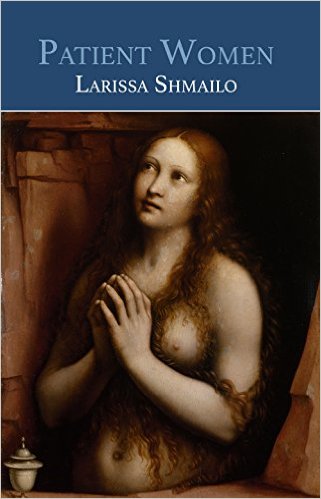
accomplished poet, editor, and translator (see my review of her poetry in
Issue # 169) . She does a lot of so-called "mixed" media, and she blogs at
larissashmailo.blogspot.com. She is productive and successful, and lives a rich life in the arts.
She is also a survivor and child of survivors, and in her new novel Patient Women, she fictionalizes pieces of her life and recreates passages from her parents' lives as well as creating searing poems ostensibly written by her character Nora Nader.
There is plenty of recreational sex and drugs and drinking and also sex work, and brilliant recreations of the downtown milieu of New York City in the nineteen seventies. Much, much sensation and despair and struggle. There are whorehouse discussions during down time about what you want in an ideal client, and there are stunning shocks: at one point, Nora finally finds a man who has potential as a long term partner. They marry-- and he drowns on their honeymoon.
Nora's life is out of control, but the novel is completely in the novelist's control. In her great confidence in her own powers, Shmailo moves towards the end out of the straight narrative into a series of experiments in story telling and genre.
The bulk of the book is the grim narrative of Nora's dive into the lower depths and her grumbling return to sobriety through the efforts of a saintly trans friend who is dying of AIDS. Then, Nora begins to press her mother to repeat and explain family stories of their time in concentration camps under the Nazis: how they survived intact. She includes her mother's stories as free-standing short works, and it becomes increasingly clear that the family was not intact at all. The stories throw Nora into a near psychotic state of remembering that seems like too much for one person to bear. She says goodbye to Chrisis, her dying sobriety sponsor. She gives support to a dying stranger, money to a beggar. She notices that the world is still around her. And then come the poems, which act both as a reprise of the themes and events of the novel and also also as unnarrated evidence of Nora's talent and hopeful future. It is a gamble, to end a novel with so many passages in a different genre, but it pays off beautifully: Nora doesn't forget, perhaps doesn't even move on completely, but she can be with people. She can create.
Another surprise hit with me was a short book, more monograph than biography,
Belle: The Slave Daughter and the Lord Chief Justice by Paula Byrne. There is little known about the "slave daughter," so the book is
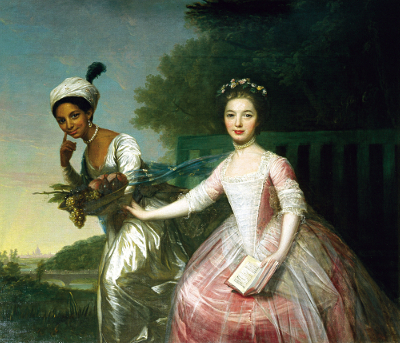
mostly about British Lord Chief Justice Mansfield and the abolition of slavery in England.
I came across this book after readingMansfield Park (probably named after Justice Mansfield) and looking up some criticism of the Austen novel. I came across notes about Jane Austen's views on slavery, and mention was made of Dido Elizabeth Belle, who is probably the beautiful and beautifully dressed girl in the painting to the left. Austen almost certainly knew people who knew her.
Belle's natural father was Justice Mansfield's nephew, and she was raised by Justice Mansfield and his wife. She eventually married a Frenchman, had a family. Her last living descendent lived in South Africa during apartheid–and was registered as white!
Much of the book is about the British slave trade and the efforts to end it, and slavery as well. Justice Mansfield made a number of anti-slavery decisions, somewhat reluctantly, but as an essential part of the end of of slavery in England.
After reading in this book, and starting another by Paula Byrne,
The Real Jane Austen: A Life in Small Things , I spent a lot of free time in the summer stuffing myself with Jane Austen books. If you like reading about Austen, take a look at my notes
below.
Special: Ed Davis Reviews A Consternation of Monsters: Stories by Eric Fritzius
I didn’t really need radio show host Rik Winston’s definition of “consternation” in his forward to Eric Fritzius’ new short story collection A Consternation of Monsters: “a strong feeling of surprise or sudden disappointment that causes confusion.”I instantly felt the word’s rightness in my own reaction to the unexplained phenomena these ten tales deal with. Fritzius’ collection is a smorgasbord of varied treats from dark creatures of the night and parallel universes to the very human “monster” we’ll all recognize.
Variety is evident throughout. There’s a creepy tale of father and son concerning the hocco, a creature “inside an echo,” according to the precocious five year old Aaron, that “says everything you say so you’ll keep saying stuff. Then it follows the sound. And then it gets you.” His father is skeptical, setting up the crisis of belief at the heart of many of these tales. Other stories are humorous, such as the author’s take on the Mothman myth: “. . . to a Flame,” involving the hapless Virgil Hawks, who loves “listening to kooks on the radio spouting about alien abductions and cattle mutilations and anal probes” and who has something very strange (and dead) lying in the back of his truck.
Odd characters, “subcontractors” from beyond, appear in these stories with contracts to fulfill for clients, most notably Bisley and Mr. Ramond, who track down the legendary Madam Z to her dusty antique store. The intruders represent the titular “Wise Ones,” whose goal is to blackmail “Miss Zeddie,” one of the “Ascended Masters” who may be “an angel on assignment from the All Mighty himself.” If she doesn’t agree to “be on retainer” to Bisley, he’ll reveal her whereabouts to her enemies. After a careful buildup of suspense, the inevitable clash of great powers ensues.
A couple of the best stories involve shape shifters. “The Ones that Aren’t Crows” dramatizes indigenous people’s revenge on the bureaucrat that cheated them out of sacred land and fishing rights. The powerfully suspenseful “Old Country” concerns hand-made quilts with protective powers crafted by the protagonist Martin’s two grandmothers. He’ll desperately need those powers if he’s to avoid being “retired” by his deceased dad’s Mafioso associate, Jimmy Jambalaya. Hiding in the attic when Jimmy and his thugs arrive, Martin invokes otherworldly powers and watches “something in the corner of his vision [move] above the center of the attic’s floorboards . . .” The creature’s shape will shift twice more before the story reaches its conclusion—but can it save both Martin and his girlfriend?
The stories that especially stood out for me in this collection were the final two. “Puppet Legacy,” the penultimate tale, reveals a southern family’s complex blend of darkness and light, reintroducing Aaron, the smart five-year-old from the collection’s first story about the hocco. Now grown and affianced to Stephanie, Aaron has returned to his maternal grandparents’ backwoods Wayne County, Mississippi farm to introduce his bride-to-be to the relatives with whom he spent seminal parts of his childhood. The story focuses on Great-Aunt Regina’s hand-made puppets, likenesses of each of the relatives Aaron loves and respects—except for their “casual racism,” which Aaron’s dad warned him about, explaining that the men of this side of the family “were of a different era with different attitudes [which] didn’t make them bad people necessarily; just wrong.”
Regina’s puppets are incredibly real likenesses which, once turned inside out, display a different, often darker face of the family member, emphasizing a character trait that’s not always flattering; for example, obnoxious cousin Amos, whose current job is to prevent the couple from having premarital sex, is “grinning, red-haired, apple-cheeked roly-polyness” on one side but a ridiculous-looking clown on the puppet’s inner side. According to Aaron, Regina had a gift to “know things that she otherwise wouldn’t.”
When Amos challenges Aaron to show Stephanie the “ghost” out in the old smokehouse, the pair find themselves on a mission that’s more than just finding missing puppets; it’s a journey that, to Aaron, “seemed somehow familiar, like something felt a long time ago . . . ” While his fiancé waits outside, Aaron penetrates veils of cobwebs and layers of junk to discover a stunning revelation about his grandfather, which the author subtly prepared us for by clues introduced earlier in the story.
Finally, “Limited Edition” focuses on the presence of otherworldly forces embodied in objects (here called archetypes) and seemingly normal people at an Antiques Road Show. The story involves the ageless, legendary “Miss Zeddie,” whom we already met in “The Wise Ones.” In the earlier story, Madam Z was so all-powerful that the fight between her and her enemies was hardly a fair one. This time, though, she meets her match in the all-too-human antiquities appraiser C. Phillips Hovelan. Without giving away too much, I’ll say the intricate plot turns on a tiny archetypal fork; the mythical man who bears it, called the Furcifer; and a shattering, very satisfying confrontation between Zeddie and Hovelan.
In addition to varied plots and characters, the writing itself in Consternation is lively, for example, the House of Usher-esque description of Madam Z’s lair in “The Wise Ones: “The building itself was an ancient structure composed of chipped gray bricks . . . held together by crumbling mortar and sheer will alone.” There’s a monstrous laugh described in the same story: “The unholy sound grew in intensity as the tall man’s jaws became a spreading cavern, his features pushing aside to make room. Beneath the foul laughter was a grotesque whistling, like that of a sick animal’s labored breath.” Such sensory description is necessary to make us believe—and fear—the dark powers Fritzius embodies in his characters, both human and supernatural. Occasionally I found a monster’s description a bit vague, but I believe Fritzius’ strengths greatly outweigh any weaknesses and most readers will find many savory delights in this uniquely themed collection.
Belinda Anderson writes:
I was struck by the sense of crushing isolation experienced by the characters, whether or not they
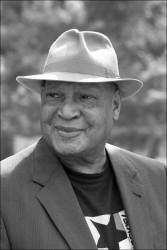
were physically isolated. Bill Trapp voices it, frequently: "I could tell you a thing or two about being here all alone." Johnny's moral disintegration, from a boy who tries to protect a bird to a boy who makes up a story that will get Bill Trapp into even more trouble, seems to be the result of his desire to escape isolation, to belong to a group: "And he knew that, behind the terror and the feeling sorry for the bird, the dead creature, was also a new feeling: a new feeling of envy for the power the Leader had over things and creatures and the other boys ..."
(Phyllis Moore had noted Johnny being shown as kind, but that trait dwindles as his determination to belong controls his actions).
Bill Trapp's efforts to escape his isolation have extended negative consequences. Eddy mentioned Mary as seeming a less sympathetic character, but once again here is a person trying desperately to belong. I also was struck by the always-surfacing human impulse to rush to judgment, which ironically is a way of belonging -- clustering to exclude someone. In addressing Phyllis's question about the status of this book as a classic, this is what the university press edition that I read had to say: " ... is remarkable for its continued emotional resonance ... While Beetlecreek did not aspire to tragedy, readers are moved by a series of lost opportunities for reconciliation within the plot. Yet throughout these lost opportunities, Beetlecreek speaks to sustain a flickering desire to violate the racial status quo."
A FEW SHORTER REVIEWS AND COMMENTS
Harper Lee's Go Set a Watchman
Christine Willis:
My reading of To Kill a Mockingbird didn't reveal an unbiased, unprejudiced Atticus that would define a liberal as is understood today. He appeared to me to be a man who lived by the instruction of law, which resulted in him behaving in such a way that some (even his own community) believed him to be a "nigger lover." I don't think he was a person who would be deserving of such a slam in the time of To Kill a Mockingbird. He was scripted words by Harper Lee to the effect that the worst thing a person could do was to cheat a Negro: "As you grow older, you'll see white men cheat black men every day of your life, but let me tell you something and don't you forget it --whenever a white man does that to a black man, no matter who he is, how rich he is, or how fine a family he comes from, that white man is trash."
The black man of
To Kill a Mockingbird's time was vulnerable to the white man's treatment as well

as the white man's law. Through that condescension, Atticus recognized and to a degree supported, the status of the black man at that time. He did not renounce a system or society that created and perpetuated the black man's situation, and he accepted its existence. Atticus goes on to address "a Negro's ignorance:"
"There's nothing more sickening to me than a low-grade white man who'll take advantage of a Negro's ignorance. Don't fool yourselves – it's all adding up and one of these days we're going to pay the bill for it. I hope it's not in you children's time."
The Atticus of Go Set a Watchman was just short of stating that the bill had become due. The black man's political progress was too fast for Atticus: "Honey, you do not seem to understand that the Negroes down here are still in their childhood as a people. You should know it, you've seen it all your life. They've made terrific progress in adapting themselves to white ways, but they're far from it yet. They were coming along fine, traveling at a rate they could absorb, more of 'em voting than ever before. Then the NAACP stepped in with its fantastic demands and shoddy ideas of government --can you blame the South for resenting being told what to do about it own people by people who have no idea of its daily problems?"
Atticus, as he is portrayed in Go Set a Watchman, is a credible descendent of [the] Atticus of To Kill a Mockingbird. Each is a product of his environment and experience.
Eddy Pendarvis:
The Harper Lee book is interesting. One thing of interest to me is how much fun Harper Lee seems to have had in scattering literary allusions throughout the book. Another thing is how I've seen no reviews that talk about Scout's racism (I mean the grown Scout). It all seems to be focused on Atticus's racism. I don't know whether Harper Lee's view was similar to Jean Louise's or whether she was just presenting an accurate portrayal of two forms of racism. Anyway, I think it's a great book to read when all the controversy of the rebel flag is still a little in the news. You ought to read it as of literary-history and social-history interest, if nothing else.
Ursula LeGuin:
Belinda Anderson on Zelda Fitzgerald's Letters
I recently read Zelda Fitzgerald's collected short stories and letters. [Zelda] was so much in her husband's shadow, at least in terms of critics, that I wasn't sure what to expect. I discovered that I liked her writing very much. I had previously read that she didn't care much for women, but I liked her female characters. I find her short stories fizzing, with the energy of a writer like Ray Bradbury. She fires similes and metaphors so rapidly that the reader is swept right along, with no time for scrutiny to see if they hold up. The entire effect works. Loved her cleverness and humor: "The first thing she bought was a tan coat much too thin to wear until it would be too hot to wear it. " Another example: "…the management set them in a corner just in case they might be more important than they looked. Then, just in case they might not, the busboys went on sweeping the floor."
Here's another aspect I like about her short stories – something happens. Her main characters turn a corner. Sometimes it's a hopeful corner. Sometimes it's a matter of learning to cope with circumstances. But something happens. I really don't understand why she didn't receive her due as a writer. Her letters were so poignant, especially with the contrast of the effervescence of her youth to the despair of her disappointments. I thought this line from a character in one of her stories was very telling: "I am going to work so hard that my spirit will be completely broken."
READERS RESPOND
Donna Meredith wrote in response to
Janet Mackenzie 's review of Ron Rash'sSerena: "I am so glad someone else thought Ron Rash's novel had weaknesses. I thought Serena was extremely one-dimensional and unbelievable as a character."
IF YOU'RE GOING TO SAN FRANCISO....
Visit the Glen Park San Francisco Bookstore and Jazz club, Bird and Beckett athttp://www.birdbeckett.com/ . It's located at 653 Chenery Street. Almost any Saturday, something terrific is happening in music or literature. I happened to pass by when I was visiting last fall, and Diane Di Prima was reading.
JOHN BIRCH E-READER REPORT: MAYBE THE FUTURE OF E-BOOKS DOESN'T LOOK AS ROSY AS WE THOUGHT
I'm sure you'll remember that several years ago there was a flap and panic in the book world, during which it was believed that e-books would take over, and that "old-fashioned" paper books would become a relic of some other time and place. Well, that doesn't seem to be happening after all. This year, independent bookstores and national chains seem to believe that print and digital books will coexist, and that they won't compete with each other. The dream of an exclusive e-book world has been severely squashed by a number of notable reports. The Association of American publishers recently released their annual data report and found that in the first three months of 2015 e-books have "plummeted." Meanwhile, according to the US Census Bureau, brick and mortar bookstore sales are on the rise for the third straight month. This May, U.S. sales across the board for books, stationery and magazines have increased by $776 million from the same period last year. We'll keep an eye on it.
READ AND LISTEN ONLINE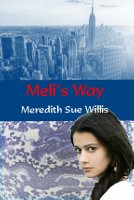
Cathy Weiss's website for writers and readers: Check it out!http://www.armoredoxfords.com/
IRENE WEINBERGER BOOKS:
.
ANNOUNCEMENTS, BOOKS RECEIVED, CONTESTS, WORKSHOPS, READINGS ETC.
Debut Novel from Matthew Neill Null
Matthew Neill Null's debut novel is Honey from the Lion, just published by Lookout Books on September 8th, 2015. The publisher says, "In this lyrical and suspenseful debut novel, a turn-of-the-century logging company decimates ten thousand acres of virgin forest in the West Virginia Alleghenies—and transforms a brotherhood of timber wolves into revolutionaries....[The novel] evokes the ecological devastation and human tragedy behind the Gilded Age, and sings both the land and ordinary lives in all their extraordinary resilience."
I hope to review it soon.
Austen Again: 19th century fanatics only!
I was so annoyed by a 1999 movie version of
Mansfield Park that I couldn't finish it and reread the book instead.
Mansfield Park has a
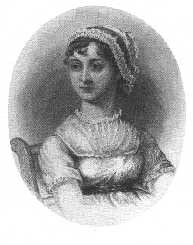
broader canvas than most of Austen, including a lot about the lives of men (and boys!) in the navy and indirect reference to slavery and the slave trade. The heroine Fanny Price isn't the feistiest of Austen's women, but the bad Crawfords siblings are totally charming.
Many years ago in an earlier reading, I rooted for the Crawfords. You know they are selfish and destructive, but it's hard not to be attracted to them. In Austen's summary at the end, she suggests Henry Crawford could ultimately have won Fanny, had he persevered and made that the one great effort of his life--that would have been an interesting, but very different book.
Patriarchy doesn't come off well in this book. Sir Thomas, the head of the family at Mansfield Park, leaves his family to their own devices (probably to deal with his slave plantations in the West Indies). His wife Lady Bertram is completely irresponsible and probably the most wonderful embodiment of indolence ever written. We don't waste time lying around on couches like that anymore! Sister Norris, who is at least energetic, is a downright monster.
Fanny keeps her back stiff, and is painfully good, but she finally grows enough to have an angry soliloquy late in the novel, which she promptly suppresses. Still, you see this suppression as an act of strength and choice, not self- abnegation.
I also read (for the first time), the unfinished Sandition which seemed cursory and sharp, more satire than wit. It is a kind of business story-- some gentlepeople trying to turn a sleepy beach village into a more elite version of Brighton or Bath. It has a gabby central family and is narrated by their practical minded young guest. Most of the satire is aimed at people who go around insisting they are suffering with various ills yet also hurrying about running everyone else's life. Also heavily satirized a young man whose plan is to seduce various women a la Lovelace in Clarissa. He's' pretty funny--assuming he doesn't really do anything too bad. How sad that Austen laid down her pen after writing forty or fifty pages of this and was never well enough to finish it.
By then I was well into my obsessive Austen-gobbling. I reread Emma, never my favorite, but the one that was highly praised when I was at Barnard College those many years ago. I think I've always been bothered by its narrowness and the essentially snobbery of the main character. Emma's moral development is engrossing to watch, but I found her attitudes and the community stifling. Emma marries the man next door, whose influence has been part of her upbringing, and she is glad to be separated from Harriet Smith, both because Harriet is marrying a farmer but also because Harriet turns out to be the natural child of a tradesman. Are the snobbery and devotion to class structure only Emma's, or Austen's as well? I never felt it in the other books, so maybe it's character based. Maybe not too. There is plenty to admire in the novel, and many things that made me laugh out loud-- the monologuists Miss Bates and obnoxious Mrs. Elton especially. But I don't like Emma's father, who is a spoiled old piss-pot who everyone treats as the finest example of English gentlemanhood. Well, maybe they think he is. I don't.
Sense and Sensibility goes fast and is largely fun, although Marianne is a fool for a lot of the novel, and I lose patience often with Elinor's extreme patience, but you can't forget how trammelled a lady was in that time and place. My favorite character may be the scheming Lucy Steele, and I adore her social triumph and who she marries. She single-mindedly scrambles to succeed in the only way she
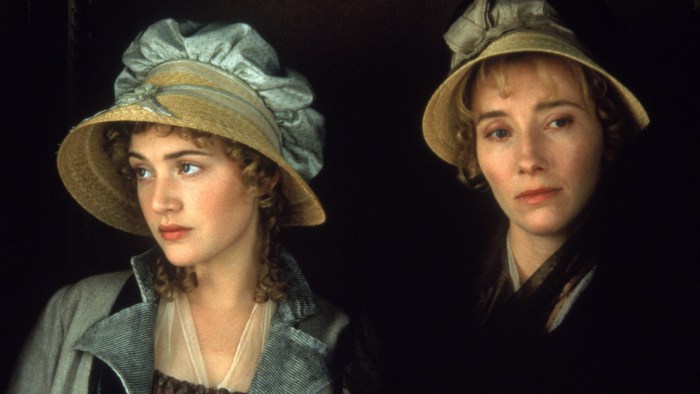
knows how--by marriage to a wealthy, socially well-placed man. It might be fun to write her version of the novel.
The movie of this novel (unlike theMansfield Park) was good, except that they made the actor who played Lucy Steele ugly. Even now, I keep visualizing Kate Winslet as Marianne (excellent choice), Emma Thompson as Elinor (a little too old), Hugh Grant as Edward, Alan Rickman as Col. Brandon. The actor who played Willoughby is Emma Thompson's present husband and father of her daughter.
So Sense and Sensibility has lots of dependable pleasures, but my favorite Austen novels at the moment are Mansfield Park (see above), and Persuasion.
Persuasion is in some ways simpler than Sense and Sensibility or Pride and Prejudiceor Mansfield Park with their larger casts of characters. (Or do they only feel larger? Anne's time in Bath has a fairly broad look at society, and there is an interesting woman friend there with a checkered past).
The love story is well-known as a return of love to older people (the heroine, fading fast, is all of 28!), but it feels like everyone is in their forties. There's a deliberateness about the writing that is a little sad, a little slow–but the gradual rediscovery of love between Anne and Wentworth is beautifully done. Anne is quicker to realize her feelings and that she has to squash them. Wentworth has to deal first with his anger and resentment. Very believable. Also, the obstacles between them are almost all character driven, not plot: Wentworth pulls back because of the attentions to Anne of the deceitful Mr. Elliot, but not for long. His honorable intentions toward Louisa Musgrove don't preclude a sensible decision to separate from her for a period during which he hopes she'll give him up. She promptly engages herself to a different man.
The story is a little grayer than the rollicking ups and downs of Sense and Sensibility(which feels much closer to, say, Fielding), but it gives really satisfaction. But how awful to be among people all the time, though, as Anne is. She, too has to give service to an appalling papa, and has an unpleasant sister as well.
I'm struck by how many awful people there are in Austen's books. She is, after all, in so many ways closer to the satirists of the eighteenth century than the sentimentalists of the nineteenth.
accomplished poet, editor, and translator (see my review of her poetry inIssue # 169) . She does a lot of so-called "mixed" media, and she blogs at larissashmailo.blogspot.com. She is productive and successful, and lives a rich life in the arts.
She is also a survivor and child of survivors, and in her new novel Patient Women, she fictionalizes pieces of her life and recreates passages from her parents' lives as well as creating searing poems ostensibly written by her character Nora Nader.There is plenty of recreational sex and drugs and drinking and also sex work, and brilliant recreations of the downtown milieu of New York City in the nineteen seventies. Much, much sensation and despair and struggle. There are whorehouse discussions during down time about what you want in an ideal client, and there are stunning shocks: at one point, Nora finally finds a man who has potential as a long term partner. They marry-- and he drowns on their honeymoon.Nora's life is out of control, but the novel is completely in the novelist's control. In her great confidence in her own powers, Shmailo moves towards the end out of the straight narrative into a series of experiments in story telling and genre.The bulk of the book is the grim narrative of Nora's dive into the lower depths and her grumbling return to sobriety through the efforts of a saintly trans friend who is dying of AIDS. Then, Nora begins to press her mother to repeat and explain family stories of their time in concentration camps under the Nazis: how they survived intact. She includes her mother's stories as free-standing short works, and it becomes increasingly clear that the family was not intact at all. The stories throw Nora into a near psychotic state of remembering that seems like too much for one person to bear. She says goodbye to Chrisis, her dying sobriety sponsor. She gives support to a dying stranger, money to a beggar. She notices that the world is still around her. And then come the poems, which act both as a reprise of the themes and events of the novel and also also as unnarrated evidence of Nora's talent and hopeful future. It is a gamble, to end a novel with so many passages in a different genre, but it pays off beautifully: Nora doesn't forget, perhaps doesn't even move on completely, but she can be with people. She can create.Another surprise hit with me was a short book, more monograph than biography,Belle: The Slave Daughter and the Lord Chief Justice by Paula Byrne. There is little known about the "slave daughter," so the book ismostly about British Lord Chief Justice Mansfield and the abolition of slavery in England.
I came across this book after readingMansfield Park (probably named after Justice Mansfield) and looking up some criticism of the Austen novel. I came across notes about Jane Austen's views on slavery, and mention was made of Dido Elizabeth Belle, who is probably the beautiful and beautifully dressed girl in the painting to the left. Austen almost certainly knew people who knew her.Belle's natural father was Justice Mansfield's nephew, and she was raised by Justice Mansfield and his wife. She eventually married a Frenchman, had a family. Her last living descendent lived in South Africa during apartheid–and was registered as white!Much of the book is about the British slave trade and the efforts to end it, and slavery as well. Justice Mansfield made a number of anti-slavery decisions, somewhat reluctantly, but as an essential part of the end of of slavery in England.After reading in this book, and starting another by Paula Byrne, The Real Jane Austen: A Life in Small Things , I spent a lot of free time in the summer stuffing myself with Jane Austen books. If you like reading about Austen, take a look at my notes below.Also in this issue are: Belinda Anderson's take on William Demby's Beetlecreek; Ed Davis on A Consternation of Monsters: Stories by Eric Fritzius; comments from several people, especially Christine Willis, on Go Set a Watchman.were physically isolated. Bill Trapp voices it, frequently: "I could tell you a thing or two about being here all alone." Johnny's moral disintegration, from a boy who tries to protect a bird to a boy who makes up a story that will get Bill Trapp into even more trouble, seems to be the result of his desire to escape isolation, to belong to a group: "And he knew that, behind the terror and the feeling sorry for the bird, the dead creature, was also a new feeling: a new feeling of envy for the power the Leader had over things and creatures and the other boys ..."
(Phyllis Moore had noted Johnny being shown as kind, but that trait dwindles as his determination to belong controls his actions).Bill Trapp's efforts to escape his isolation have extended negative consequences. Eddy mentioned Mary as seeming a less sympathetic character, but once again here is a person trying desperately to belong. I also was struck by the always-surfacing human impulse to rush to judgment, which ironically is a way of belonging -- clustering to exclude someone. In addressing Phyllis's question about the status of this book as a classic, this is what the university press edition that I read had to say: " ... is remarkable for its continued emotional resonance ... While Beetlecreek did not aspire to tragedy, readers are moved by a series of lost opportunities for reconciliation within the plot. Yet throughout these lost opportunities, Beetlecreek speaks to sustain a flickering desire to violate the racial status quo."as the white man's law. Through that condescension, Atticus recognized and to a degree supported, the status of the black man at that time. He did not renounce a system or society that created and perpetuated the black man's situation, and he accepted its existence. Atticus goes on to address "a Negro's ignorance:"
"There's nothing more sickening to me than a low-grade white man who'll take advantage of a Negro's ignorance. Don't fool yourselves – it's all adding up and one of these days we're going to pay the bill for it. I hope it's not in you children's time."The Atticus of Go Set a Watchman was just short of stating that the bill had become due. The black man's political progress was too fast for Atticus: "Honey, you do not seem to understand that the Negroes down here are still in their childhood as a people. You should know it, you've seen it all your life. They've made terrific progress in adapting themselves to white ways, but they're far from it yet. They were coming along fine, traveling at a rate they could absorb, more of 'em voting than ever before. Then the NAACP stepped in with its fantastic demands and shoddy ideas of government --can you blame the South for resenting being told what to do about it own people by people who have no idea of its daily problems?"Atticus, as he is portrayed in Go Set a Watchman, is a credible descendent of [the] Atticus of To Kill a Mockingbird. Each is a product of his environment and experience.broader canvas than most of Austen, including a lot about the lives of men (and boys!) in the navy and indirect reference to slavery and the slave trade. The heroine Fanny Price isn't the feistiest of Austen's women, but the bad Crawfords siblings are totally charming.
Many years ago in an earlier reading, I rooted for the Crawfords. You know they are selfish and destructive, but it's hard not to be attracted to them. In Austen's summary at the end, she suggests Henry Crawford could ultimately have won Fanny, had he persevered and made that the one great effort of his life--that would have been an interesting, but very different book.Patriarchy doesn't come off well in this book. Sir Thomas, the head of the family at Mansfield Park, leaves his family to their own devices (probably to deal with his slave plantations in the West Indies). His wife Lady Bertram is completely irresponsible and probably the most wonderful embodiment of indolence ever written. We don't waste time lying around on couches like that anymore! Sister Norris, who is at least energetic, is a downright monster.Fanny keeps her back stiff, and is painfully good, but she finally grows enough to have an angry soliloquy late in the novel, which she promptly suppresses. Still, you see this suppression as an act of strength and choice, not self- abnegation.I also read (for the first time), the unfinished Sandition which seemed cursory and sharp, more satire than wit. It is a kind of business story-- some gentlepeople trying to turn a sleepy beach village into a more elite version of Brighton or Bath. It has a gabby central family and is narrated by their practical minded young guest. Most of the satire is aimed at people who go around insisting they are suffering with various ills yet also hurrying about running everyone else's life. Also heavily satirized a young man whose plan is to seduce various women a la Lovelace in Clarissa. He's' pretty funny--assuming he doesn't really do anything too bad. How sad that Austen laid down her pen after writing forty or fifty pages of this and was never well enough to finish it.By then I was well into my obsessive Austen-gobbling. I reread Emma, never my favorite, but the one that was highly praised when I was at Barnard College those many years ago. I think I've always been bothered by its narrowness and the essentially snobbery of the main character. Emma's moral development is engrossing to watch, but I found her attitudes and the community stifling. Emma marries the man next door, whose influence has been part of her upbringing, and she is glad to be separated from Harriet Smith, both because Harriet is marrying a farmer but also because Harriet turns out to be the natural child of a tradesman. Are the snobbery and devotion to class structure only Emma's, or Austen's as well? I never felt it in the other books, so maybe it's character based. Maybe not too. There is plenty to admire in the novel, and many things that made me laugh out loud-- the monologuists Miss Bates and obnoxious Mrs. Elton especially. But I don't like Emma's father, who is a spoiled old piss-pot who everyone treats as the finest example of English gentlemanhood. Well, maybe they think he is. I don't.Sense and Sensibility goes fast and is largely fun, although Marianne is a fool for a lot of the novel, and I lose patience often with Elinor's extreme patience, but you can't forget how trammelled a lady was in that time and place. My favorite character may be the scheming Lucy Steele, and I adore her social triumph and who she marries. She single-mindedly scrambles to succeed in the only way sheknows how--by marriage to a wealthy, socially well-placed man. It might be fun to write her version of the novel.
The movie of this novel (unlike theMansfield Park) was good, except that they made the actor who played Lucy Steele ugly. Even now, I keep visualizing Kate Winslet as Marianne (excellent choice), Emma Thompson as Elinor (a little too old), Hugh Grant as Edward, Alan Rickman as Col. Brandon. The actor who played Willoughby is Emma Thompson's present husband and father of her daughter.So Sense and Sensibility has lots of dependable pleasures, but my favorite Austen novels at the moment are Mansfield Park (see above), and Persuasion.Persuasion is in some ways simpler than Sense and Sensibility or Pride and Prejudiceor Mansfield Park with their larger casts of characters. (Or do they only feel larger? Anne's time in Bath has a fairly broad look at society, and there is an interesting woman friend there with a checkered past).The love story is well-known as a return of love to older people (the heroine, fading fast, is all of 28!), but it feels like everyone is in their forties. There's a deliberateness about the writing that is a little sad, a little slow–but the gradual rediscovery of love between Anne and Wentworth is beautifully done. Anne is quicker to realize her feelings and that she has to squash them. Wentworth has to deal first with his anger and resentment. Very believable. Also, the obstacles between them are almost all character driven, not plot: Wentworth pulls back because of the attentions to Anne of the deceitful Mr. Elliot, but not for long. His honorable intentions toward Louisa Musgrove don't preclude a sensible decision to separate from her for a period during which he hopes she'll give him up. She promptly engages herself to a different man.The story is a little grayer than the rollicking ups and downs of Sense and Sensibility(which feels much closer to, say, Fielding), but it gives really satisfaction. But how awful to be among people all the time, though, as Anne is. She, too has to give service to an appalling papa, and has an unpleasant sister as well.I'm struck by how many awful people there are in Austen's books. She is, after all, in so many ways closer to the satirists of the eighteenth century than the sentimentalists of the nineteenth.Books for Readers Newsletter by Meredith Sue Willis is licensed under a Creative Commons Attribution-NoDerivs 3.0 Unported License. Permissions beyond the scope of this license may be available at http://www.meredithsuewillis.com. Some individual contributors may have other licenses.
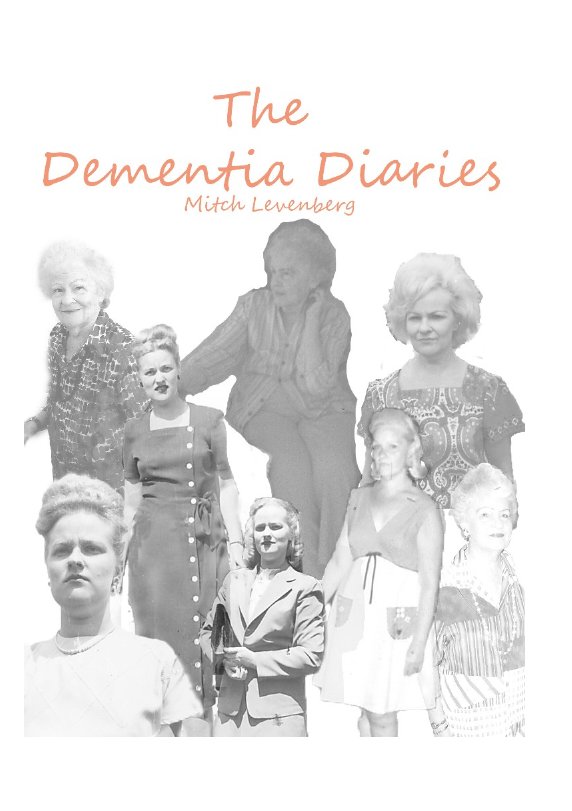




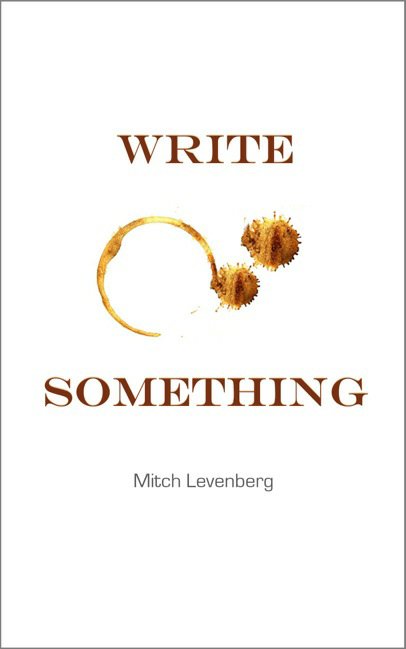


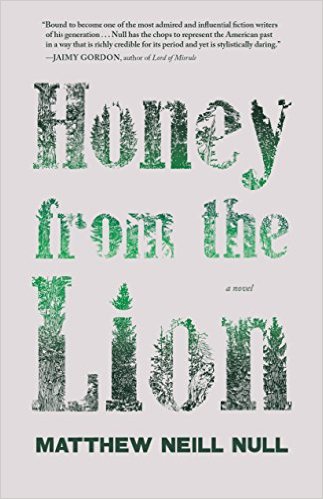

1 comment:
WE'RE RECRUITING NEW LIVE CAM MODELS!
GENERATE OVER $10,000 EVERY WEEK.
SIGN-UP AS A BONGA MODELS CAM MODEL TODAY!
Post a Comment